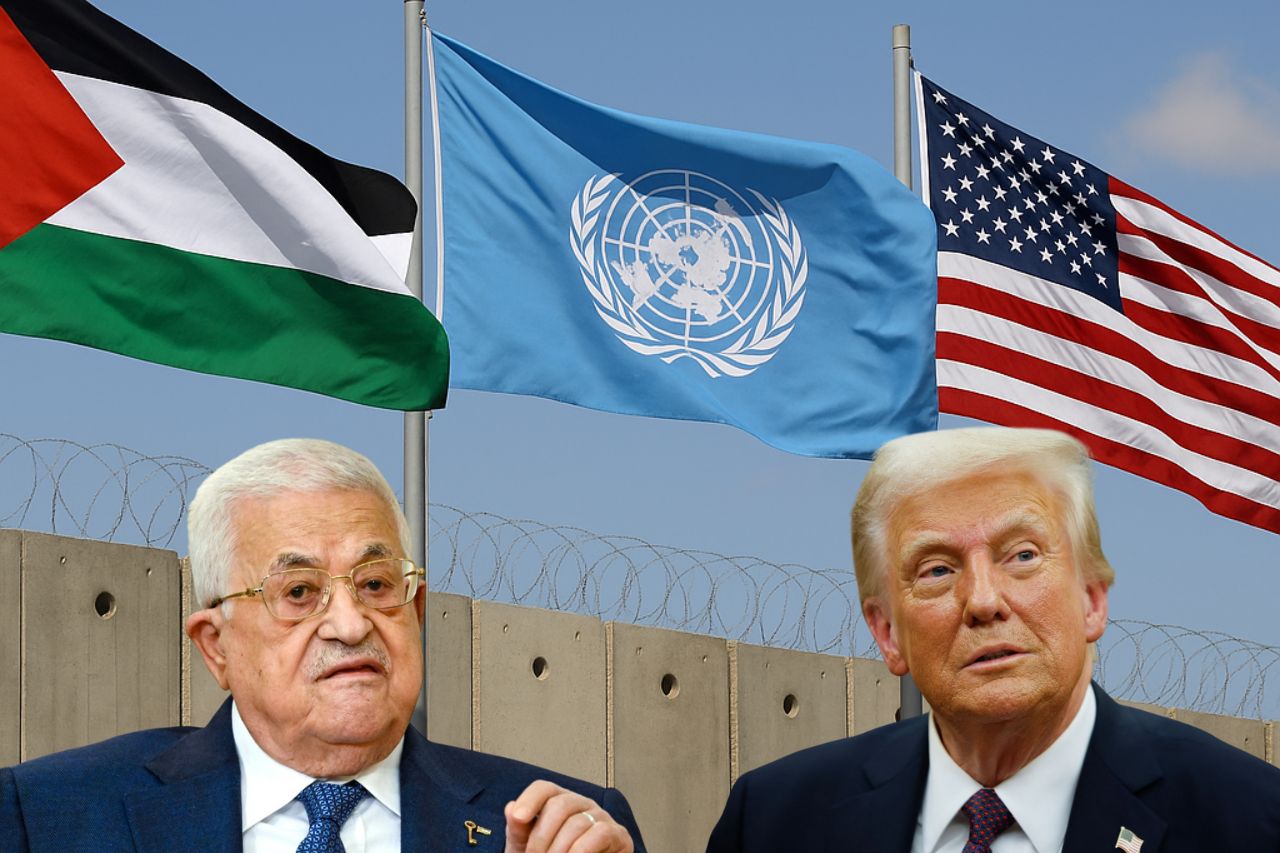A new UN-backed Gaza peace initiative, supported by Palestinian President Mahmoud Abbas, has injected fresh momentum into global efforts to end the decades-long Israeli-Palestinian conflict.
The plan comes as US President Donald Trump made a surprise declaration that he would not allow Israel to annex the occupied West Bank, a stance that could place Washington on a collision course with Israeli Prime Minister Benjamin Netanyahu’s far-right government.
Why Abbas backed the UN peace plan, rejected Hamas’ role?
Speaking by video to the UN General Assembly on September 26, 2025, after Washington denied him a visa, Abbas endorsed a seven-page declaration overwhelmingly approved earlier this month by the 193-member UNGA.
The resolution, born out of a July conference hosted by Saudi Arabia and France, lays out a framework for a two-state solution and a roadmap to end the war in Gaza.
“Despite all that our people have suffered, we reject what Hamas carried out on Oct. 7, acts that targeted Israeli civilians and took them as hostages, because such actions do not represent the Palestinian people,” Abbas said.
The Palestinian leader pledged that the Palestinian Authority (PA) was ready to assume full governance and security responsibilities in Gaza.
“Hamas will have no role in governance, and it, along with other factions, must hand over its weapons to the Palestinian National Authority,” Abbas declared, stressing that Palestine “does not want an armed state.”
Abbas also expressed readiness to work with Trump, Saudi Arabia, France, and the UN to implement the Gaza peace plan.
Why did Hamas reject Abbas’ vision?
Hamas, however, dismissed Abbas’s remarks as “submission to external dictates.” In a statement, the group insisted that it would not disarm as long as “the occupation remains entrenched on our land and oppressing our people.”
Israeli Foreign Minister Gideon Saar was equally dismissive, calling Abbas’s speech “nice words” meant for the West, while mocking the PA leader for pledging to reclaim Gaza, which the PA lost to Hamas in 2007.
What is Trump’s 21-point peace plan and West Bank warning?
Meanwhile, Trump’s Middle East envoy Steve Witkoff revealed that the US president had presented a 21-point peace plan to leaders of several Muslim-majority countries during meetings on the sidelines of the UNGA.
The details remain undisclosed, but Trump said “very good talks” were held with Saudi Arabia, Qatar, Egypt, Jordan, Turkiye, Indonesia, and Pakistan, as well as with Netanyahu.
On September 26, however, Trump issued his clearest rebuke yet of Israel’s annexation ambitions. “I will not allow Israel to annex the West Bank. Nope. I will not allow. It’s not gonna happen,” Trump told reporters, refusing to elaborate on what measures he might take to enforce his stance.
Analysts were cautious. Mouin Rabbani of the Center for Conflict and Humanitarian Studies said Trump’s remarks were “positive” but warned that “one attaches value to Trump’s words at their own peril.” Mohamad Elmasry of the Doha Institute added that Washington often signals opposition to Israeli actions but later “stands back.”
What is the Israeli settlements’ brush with international law?
Trump’s remarks came just months after Israel’s parliament overwhelmingly backed a motion calling for the annexation of the West Bank. The drive is spearheaded by far-right ministers such as Bezalel Smotrich, who lives in an illegal settlement and oversees settlement policy.
Settlement expansion has accelerated despite a July 2024 International Court of Justice ruling declaring all Israeli settlements in occupied territory illegal and ordering their dismantlement. The controversial E1 expansion project threatens to carve up the West Bank in ways critics say would make a Palestinian state geographically impossible.
What are the current global stakes in West Asia?
The Gaza war and settlement issue remain deeply intertwined with US policy. Israel, which relies heavily on American military and financial aid, could face a political crisis if Washington enforces a ban on annexation. For Netanyahu’s fragile coalition, dominated by ultranationalist parties, such pressure could prove destabilising.
Abbas’ endorsement of the UN plan and Trump’s sudden warning to Israel have reshaped the diplomatic landscape, at least temporarily. Yet with Hamas defiant, Israel dismissive, and US credibility uncertain, whether the Gaza peace initiative and Trump’s words translate into concrete action remains an open question.
